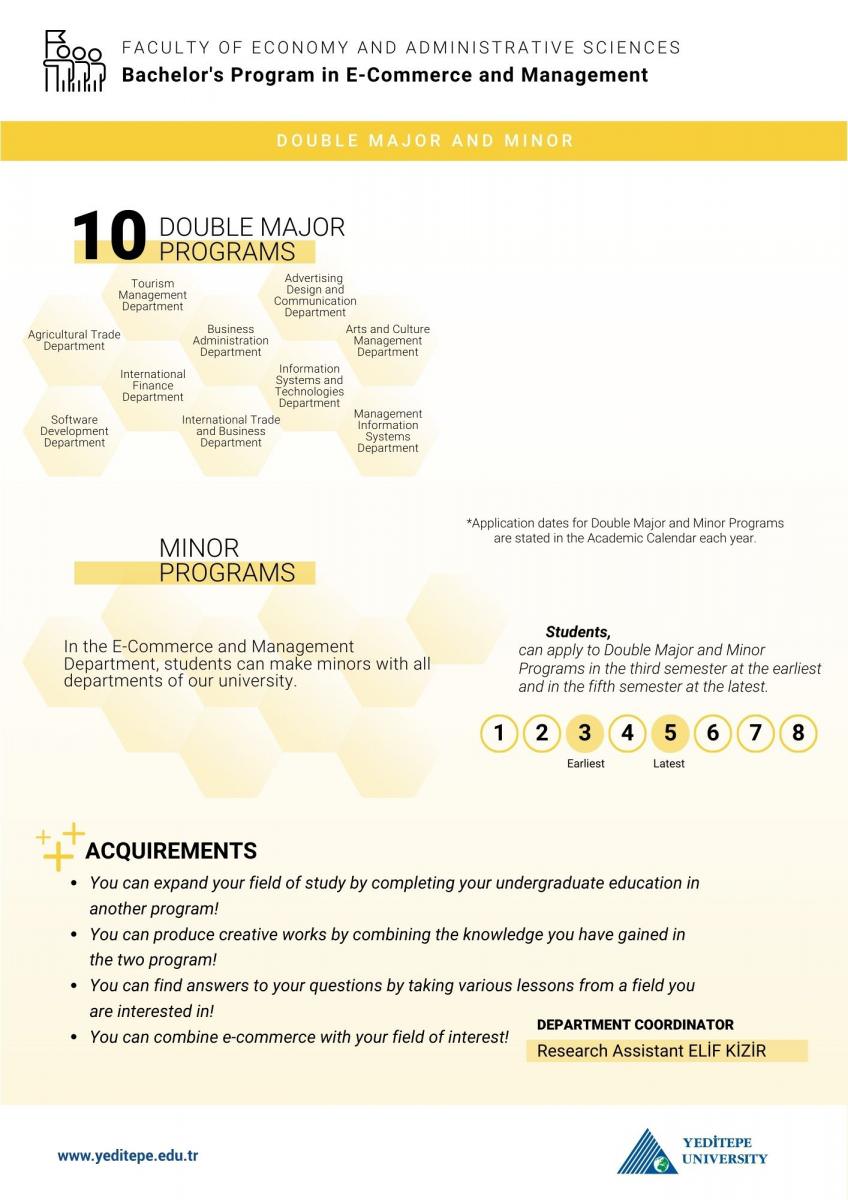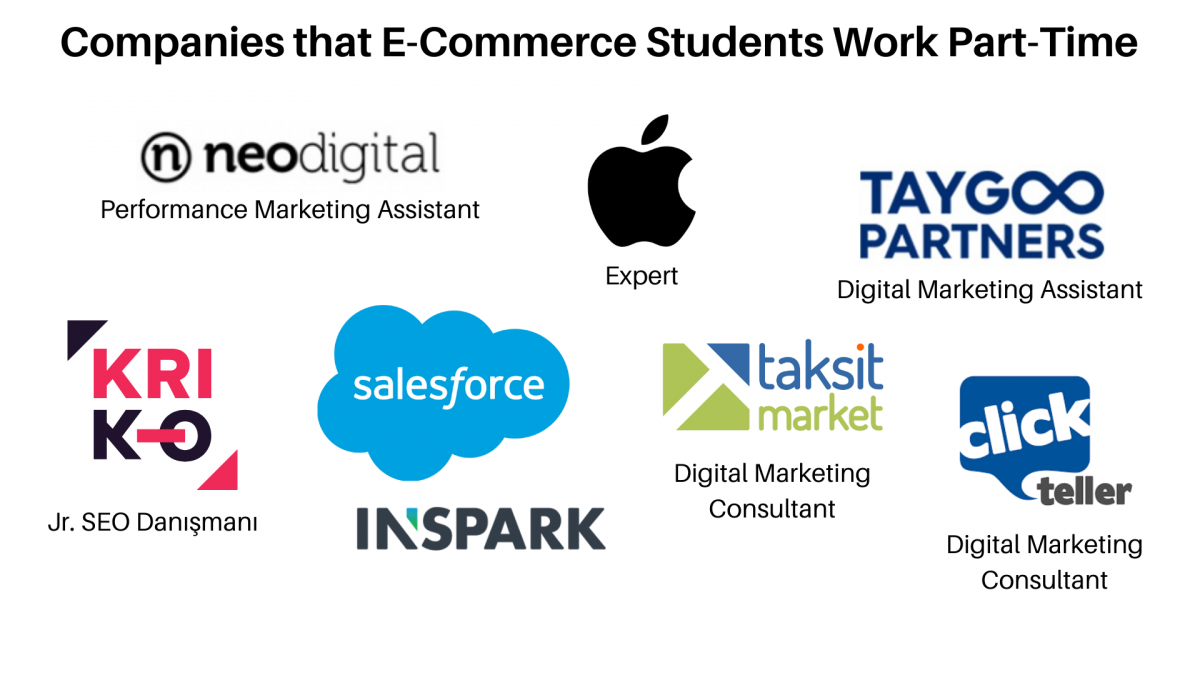Frequently Asked Questions
E-commerce has gained importance due to convenience, global reach, wide product selection, competitive pricing, personalization, technological advancements, and the integration of social media and influencer marketing.
Overall, the combination of convenience, global reach, extensive product selection,
competitive pricing, personalization, and technological advancements has propelled the
importance and growth of e-commerce in recent years.
Studying e-commerce is beneficial for understanding a growing industry, identifying
business opportunities, gaining digital skills, comprehending consumer behavior, developing multi-disciplinary knowledge, embracing adaptability, and leveraging global reach.
Whether you aspire to work in e-commerce, start your own online business, or gain valuable digital skills applicable to various industries, studying e-commerce can provide you with the necessary knowledge and expertise to succeed in today's digital economy.
Knowing e-commerce models helps in formulating effective business strategies,
generating revenue, enhancing customer experience, improving operational efficiency,
expanding market reach, and gaining a competitive advantage.
Knowing e-commerce models is crucial for businesses as it helps in formulating effective business strategies, generating revenue, enhancing customer experience, improving operational efficiency, expanding market reach, fostering scalability, and gaining a competitive advantage. It enables businesses to navigate the complex digital landscape and maximize their success in the e-commerce space.
To improve e-commerce skills, engage in continuous learning, take online courses and
certifications, gain hands-on experience, network and collaborate, study case studies and research, experiment and test, seek mentorship and guidance, and stay updated with tools and technologies.
While these skills are valuable in e-commerce, it's important to note that the specific skills required may vary depending on the role and responsibilities within the e-commerce ecosystem. Continuous learning and staying abreast of industry developments are key to adapting and thriving in this fast-paced industry.
To improve e-commerce skills, engage in continuous learning, take online courses and certifications, gain hands-on experience, network and collaborate, study case studies and research, experiment and test, seek mentorship and guidance, and stay updated with tools and technologies.
Remember, improving your skills in e-commerce is a continuous journey. Embrace a proactive approach, seek diverse learning opportunities, and stay curious about emerging trends and innovations in the field. By consistently investing in your growth and development, you can enhance your e-commerce skills and stay competitive in the industry.
By learning the three types of e-commerce, you gain a comprehensive understanding of the e- commerce landscape and the specific considerations for each model. This knowledge allows you to make informed decisions, develop targeted strategies, and navigate the unique challenges and opportunities within your chosen e-commerce domain. It equips you with the versatility to adapt to different business contexts and cater to the needs of diverse customer segments.
An undergraduate education in e-commerce offers a well-rounded learning experience, equipping students with a comprehensive understanding of e-commerce principles, practical skills, industry relevance, networking opportunities, and career prospects. It lays a strong foundation for success in the dynamic and rapidly expanding field of e- commerce.
Undergraduate education in e-commerce provides a foundation in e-commerce principles, a holistic perspective, practical skills development, industry-relevant curriculum, networking opportunities, diverse career prospects, adaptability, and academic credentials.
Studying e-commerce management strategies enables strategic decision-making, competitive advantage, business growth and expansion, customer relationship management, risk management, operational efficiency, adaptability to technological advancements, and entrepreneurship and innovation.
By studying e-commerce management strategies, you gain a comprehensive understanding of how to strategically manage and grow e-commerce businesses. The knowledge and skills acquired can lead to improved decision-making, enhanced competitiveness, operational efficiency, customer relationship management, and adaptability to the ever-changing e- commerce landscape.


E-Commerce and Management Department students can work part-time in companies along with their undergraduate education. Companies where our students work part-time:

The companies where our students who took the ETT 290 and ETT 390 Internship course in the summer did their internship are as follows:

